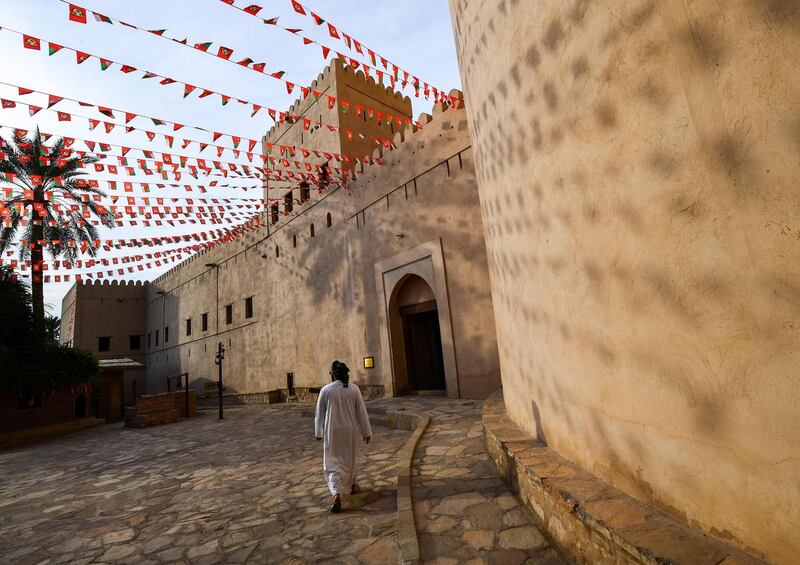Oman’s government expects to increase spending modestly this year under a 2019 state budget released on Tuesday, an official statement said.
In the state budget for 2019, total spending will increase to 12.9 billion Omani rials (Dh123.21bn) for the year - a rise of 400 million rials compared to 12.5bn rials announced in the 2018 budget.
The 2019 budget estimates a deficit of 2.8bn rials for this year, lower than 3bn rial deficit estimated in 2018.
Sultan of Oman Qaboos bin Said issued a Royal Decree for the ratification of the general budget of the state for fiscal year 2019.
The sultanate's 2019 budget, which is based on an oil price assumption of $58 per barrel, estimates total revenues of 10.1bn rials, Reuters said.
According to the government, around 86 per cent of the 2.8bn rial budget deficit will be financed through external and domestic borrowing while remain 14 per cent deficit will be covered through the withdrawal from reserves.
_______________
Read more:
Oman’s Duqm oil refinery secures $100m from Apicorp
Omani youth move a step closer digital destiny
_______________
Oman reduced its budget deficit by more than 36 per cent to 2.04bn rial in the first 10 months of the year against a budget shortfall of 3.2bn rials for the same period of last year, official figures published by the National Centre for Statistics and Information (NCSI) showed.
Prior to Tuesday's announcement, the government and public sector departments were urged to avoid increasing their budgets and focus on rationalising expenditure and rearranging priorities in line with the available financial resources, according to Bahrain's GDN online news agency.
The main focus of the general budget 2019 is on reducing the deficit and debt and rationalising public expenditure, among other requirements.
Before the announcement, the Ministry of Finance stressed the need to maintain basic priority areas for citizens - such as health, education, electricity, water and social security – and focus on diversifying the sources of income and increasing the contribution of non-oil revenues.
Last month, Fitch Ratings said a range of macroeconomic risks will present more downside than upside risks for sovereign credit ratings in 2019.
Of the 27 rating outlooks Fitch assigned for this year, 15 were negative and 12 were positive, with Latin America and the Middle East and Africa (MEA) set to perform the weakest out of all global regions in 2019, said Tony Stringer, the rating agency’s managing director of sovereign credit said.
In the MEA region, Fitch assigned four negative rating outlooks (Lesotho, Oman, Tunisia and Zambia) versus one positive one (Egypt).
“The bifurcation towards negative sovereign outlooks was due to a mix of factors, including continued market or currency volatility, macroeconomic weakness and/or fiscal or governance issues,” said Mr Stringer.






